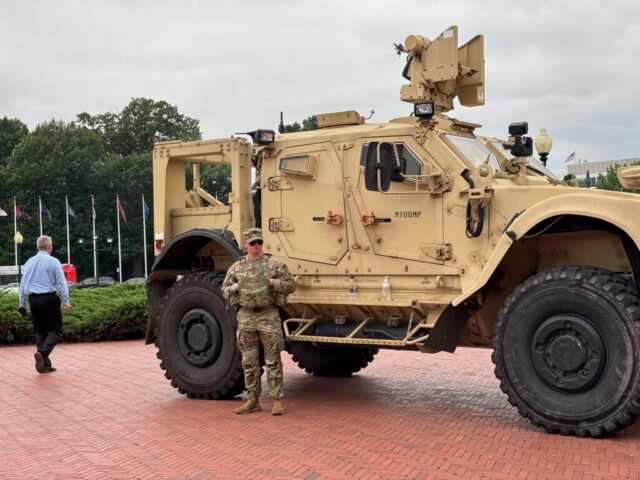
In late 2025, the U.S. National Guard finds itself at the center of a major national confrontation — a flashpoint not over foreign deployments or disaster relief, but over domestic politics, civil authority, and constitutional limits on federal force.
At issue is the Trump administration’s expanded plan to deploy National Guard troops (and in some cases, federalize them) to cities such as Chicago, Portland, and Memphis to backstop federal law enforcement in its immigration crackdown. AP News The deployments are proceeding despite fierce resistance from local and state governments and a cascade of lawsuits aiming to block or reverse them. Reuters
Most recently, Texas National Guard troops landed in Illinois near Chicago, further escalating the standoff. Al Jazeera Illinois and Chicago promptly sued, seeking to block the deployment, arguing it is unconstitutional, violates states’ rights, and undermines long-standing limits on domestic military power. Reuters
A federal judge declined to issue an immediate restraining order, allowing the deployment to proceed for now. However, the judge urged the federal administration to file a response and prepare for further hearings. Jacksonville Journal-Courier Meanwhile, the administration is threatening to invoke the Insurrection Act to override state objections, a move that legal scholars suggest could set off more litigation and constitutional crises. TIME
Legal and Constitutional Battlegrounds
At the heart of the conflict are fundamental questions:
- Federal vs. State Authority. The Guard occupies a dual role: under state control in Title 32 status unless mobilized federally under Title 10. The attempt to mobilize or federalize Guard units over state-level objections is being contested as a violation of state sovereignty. opb
- Posse Comitatus & Domestic Military Limits. The Posse Comitatus Act limits the use of active-duty military in domestic policing. While the Guard is not always bound by the same constraints, using it to support law enforcement operations in cities raises legal and ethical concerns about the militarization of domestic space. TIME
- Threshold for Insurrection Act. The Insurrection Act, dating to 1807, allows the president to deploy federal troops to suppress insurrection, but only under conditions of serious civil disorder or inability of local authorities to maintain order. Critics argue that Trump’s invocation would stretch the statute beyond its intended bounds.
- Judicial Precedents. Courts have already blocked similar deployments, such as in Portland, arguing that the government failed to prove that protests had obstructed federal functions or justified military presence. Reuters
In Oregon, Governor Tina Kotek has ordered the demobilization of both Oregon and California Guard units that were under federal control, describing their mission as illegal and disruptive to state guard responsibilities. opb The legal back-and-forth is making each deployment a test case in how far presidential authority extends into domestic affairs.
Broader Impacts and Other Developments
While the political drama dominates headlines, there are other recent developments affecting the Guard:
Cybersecurity Breach
A confidential memo from the Department of Homeland Security revealed that a U.S. state’s Army National Guard network was extensively compromised in 2024 by a Chinese cyberespionage group known as “Salt Typhoon.” The breach allegedly extracted sensitive maps and inter-state network traffic data, raising alarm about vulnerabilities in state military networks. Reuters The incident underscores that beyond politics, the National Guard is under growing pressure to modernize its cybersecurity posture.
Cyber Incident Response: St. Paul
Earlier in 2025, a sophisticated cyberattack disrupted many of St. Paul, Minnesota’s city systems, triggering emergency declarations and activation of the Minnesota National Guard’s cyber protection assets. Wikipedia. This deployment is an example of how the Guard is increasingly used in the cyber domain — a mission that stretches its traditional role.
New Structural Proposals
In August 2025, reporting surfaced on a proposed Domestic Civil Disturbance Quick Reaction Force (DCQR Force) — a specialized National Guard unit prepositioned to respond rapidly to domestic unrest. Wikipedia The force would be split between Arizona and Alabama. If realized, this plan could institutionalize a militarized rapid response capacity within the Guard, making future deployments faster and more centralized — but also heightening concerns about overreach.
Rollbacks & Withdrawals
Some deployments are being scaled back. In Los Angeles, over 1,000 National Guard troops have recently been withdrawn, leaving about 250 to protect federal property, in part in response to local backlash and legal pressure. The Washington Post This suggests that the administration is responsive (or reactive) to public and institutional pushback over militarized domestic presence.
What to Watch: Key Variables
- Court rulings on ongoing lawsuits. The next round of decisions will help determine whether the federal government can sidestep state objections in mobilizing Guardsmen.
- Invocation (or not) of the Insurrection Act. If the president activates it, that likely sparks widespread legal and political resistance.
- Guard readiness and morale. Using the Guard for domestic enforcement may strain its ability to respond to disasters or overseas missions — and affect recruitment and retention, especially in states opposed to federal intervention. The Washington Post
- Precedent for future deployments. If the federal government succeeds in enforcing these deployments, it could set a lasting template for using military force in anything deemed a law-and-order situation.
- Evolution of hybrid missions. The Guard’s increasing role in cybersecurity, disaster response, and domestic security means it will continue to be pulled into thorny debates over civil-military boundaries.
In summary, the National Guard has become a focal point in a broader national conflict over the balance between federal authority and state sovereignty, especially in policing and immigration enforcement. The outcomes in Chicago, Portland, and elsewhere will carry ramifications far beyond those cities — for how America defines the role of its citizen soldiers in moments of domestic strife.
Disclaimer
The information contained in South Florida Reporter is for general information purposes only.
The South Florida Reporter assumes no responsibility for errors or omissions in the contents of the Service.
In no event shall the South Florida Reporter be liable for any special, direct, indirect, consequential, or incidental damages or any damages whatsoever, whether in an action of contract, negligence or other tort, arising out of or in connection with the use of the Service or the contents of the Service. The Company reserves the right to make additions, deletions, or modifications to the contents of the Service at any time without prior notice.
The Company does not warrant that the Service is free of viruses or other harmful components












